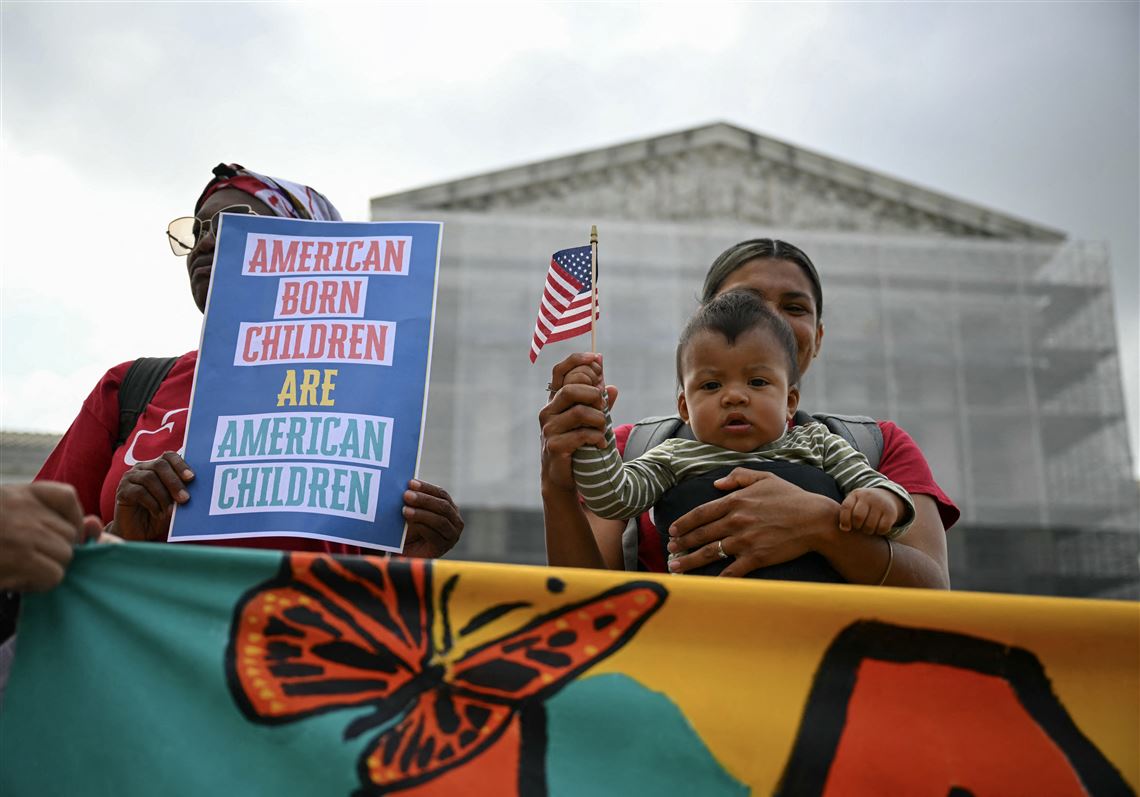On Thursday, May, 25, 2025, the U.S. Supreme Court heard oral arguments on the far-reaching consequences of President Trump’s controversial executive order to end birthright citizenship.
The arguments stated that this order could have far-reaching implications for the scope of presidential power.
At the heart of the case is Trump’s January 2025 executive order.
The order reportedly aims to deny U.S. citizenship to children born on American soil if their parents are neither U.S. citizens nor lawful permanent residents.
This directive appears to contradict the 14th Amendment, which explicitly grants citizenship to “all persons born or naturalized in the United States.”
Justice Sonia Sotomayor noted early in the session that the executive order violates at least four prior Supreme Court rulings.
Despite this, Trump’s legal team is not seeking a direct ruling on the constitutionality of the order.
Instead, they are contesting the authority of lower federal courts to issue nationwide injunctions that block presidential policies across the entire country.
So far, three federal judges have imposed nationwide blocks on Trump’s birthright citizenship order, including U.S. District Judge Deborah Boardman.
She stated that no court has ever validated the president’s interpretation of the 14th Amendment.
The Justice Department, however, argues that these sweeping injunctions unfairly restrict the president’s ability to implement policy.
In a March court filing, they claimed such injunctions have “reached epidemic proportions” since Trump returned to office.
They are asking the Supreme Court to limit injunctions so they only apply to the plaintiffs directly involved in a given lawsuit.
If the Court rules in Trump’s favor, the administration may be able to enforce the birthright citizenship policy in regions where courts have not blocked it.
This could result in different legal standards for citizenship across various states while lawsuits continue, creating what critics describe as a legal patchwork.
The Supreme Court’s conservative majority, which includes three Trump-appointed justices, has previously expressed concern about the broad use of nationwide injunctions.
Justice Neil Gorsuch has called the issue a matter “of great significance” that merits the Court’s attention.
Opponents of limiting these injunctions warn that doing so would require thousands of individuals to file lawsuits to protect the same rights.
Justice Elena Kagan raised this concern during the session.
She asked Solicitor General D. John Sauer how a consistent rule of citizenship could be enforced if the executive order is assumed to be unconstitutional.
“Does every single person that is affected by this EO have to bring their own suit?”
Kagan asked. “How long would that take, and how do we ensure one consistent citizenship rule across the country?”
Sauer responded that emergency class action status might be possible, but courts generally only extend relief to those directly involved in the case, not to broader populations.
By late March, Trump’s second term had already seen at least 17 nationwide injunctions, according to the Congressional Research Service.
In his first term, he was hit with 86 such rulings, far more than previous presidents.
Comparatively, Joe Biden has faced 28, Barack Obama 12, and George W. Bush only six.
As of May 1, Trump has been the subject of 328 lawsuits nationwide, with courts blocking his actions over 200 times, according to Bloomberg.
The administration contends that universal injunctions are preventing the executive branch from functioning effectively.
According to it, the injunctions halt policies before courts have fully examined their legal merits.
Conservative Justice Clarence Thomas appeared to support this concern, noting that the U.S. “survived until the 1960s without universal injunctions.”
Meanwhile, hundreds of protesters gathered outside the Supreme Court as arguments were heard.
Organized by the immigration advocacy group Casa, demonstrators chanted in English and Spanish, holding signs that read: “Birthright Citizenship isn’t a conditional privilege.”
Andrea Flores, vice president of immigration policy at Forward US, voiced concern over the potential for inconsistent citizenship rules if nationwide injunctions are limited.
“You could have a situation where in South Carolina, a child of immigrants isn’t a citizen, but in North Carolina, that same child is a citizen,” she warned, calling it a “patchwork system.”
She emphasized that the 14th Amendment’s language is clear and well-established.
She also described the legal rationale behind Trump’s executive order as a “fringe theory.”
Three separate legal challenges have been consolidated into one case before the Supreme Court, brought via an emergency appeal on the Court’s so-called “shadow docket.”
A ruling is expected by early July.







